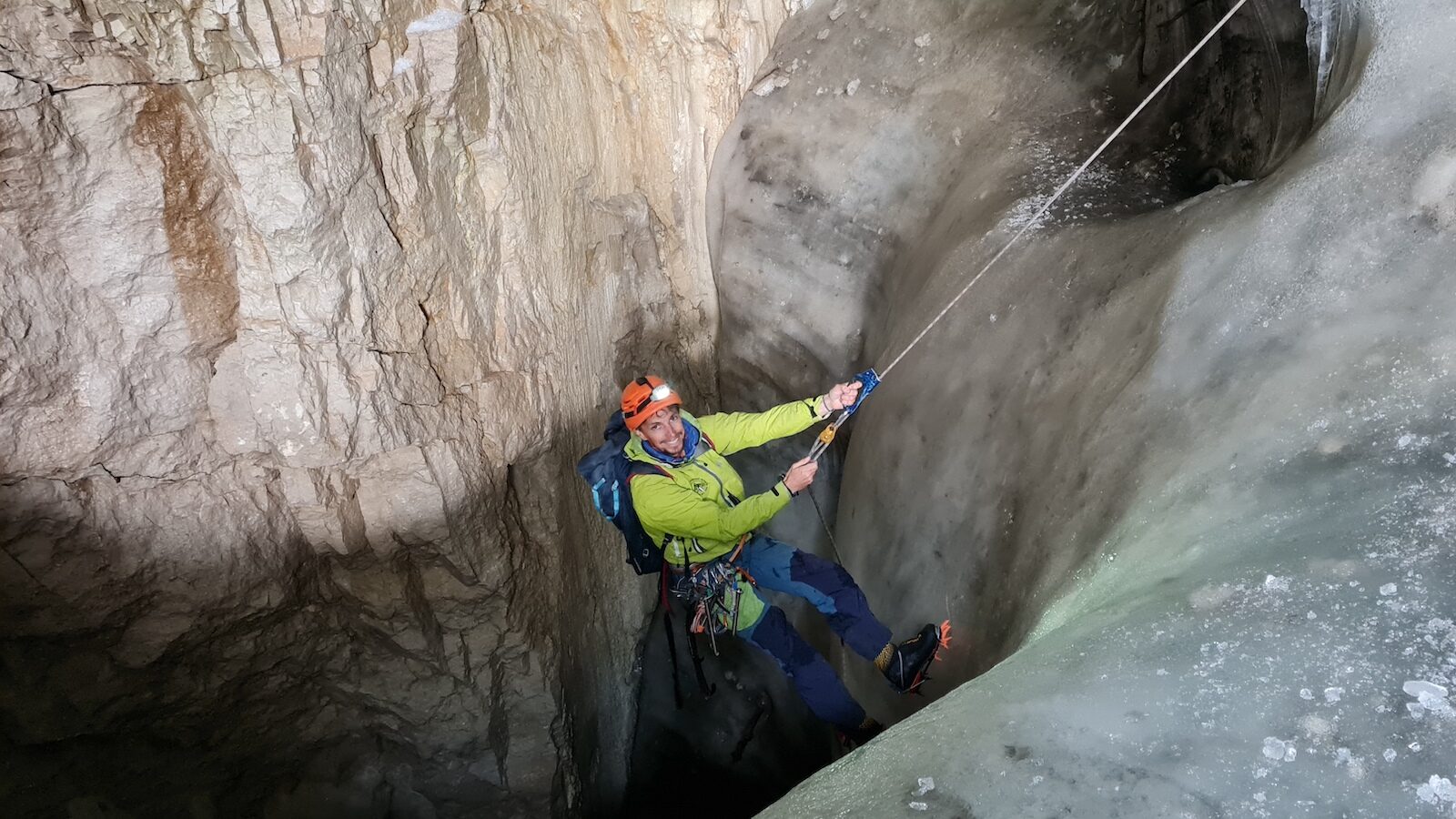Traglacières – Trajectories of glaciers in the French mountains
Début du projet : 2023The glaciers of the French mountains – underground cavities containing large volumes of ice – have undergone a variety of transformations, from ice extraction for breweries to an underground training site for mountaineers. But how are they evolving in the face of global warming?
 © G. Flinois
© G. Flinois
A glacier is a cavity, often karstic, in which the temperature remains negative throughout the year, allowing the maintenance of sometimes considerable volumes of ice. Permafrost conditions can be found at altitudes where normal climatic conditions preclude their presence.
Current global warming is calling into question these highly specific thermal regimes, and therefore the very existence of glaciers. Alongside the geoscientific work recently relaunched by the Edytem laboratory to make up for the glaring lack of research on glaciers in France and gain a better understanding of their physical functioning, it is essential to have a parallel societal perspective.
The Traglacières project aims to develop knowledge of the distribution and trajectories of French glaciers in terms of use and management. It aims to provide an overview of the trajectories taken by these “anthropo-geosystems”, both as resources – ice exploitation for urban needs, tourism, recreational and sports areas, new practices, etc. – and as heritages to be safeguarded. – and as heritages to be safeguarded.
In the field, a case study will be carried out at the Grande Glacière du Parmelan site in the Bornes massif (Haute-Savoie). Visitor numbers will be studied using sensors and visitor logs installed on the various floors of the cave and at the Anglettaz chalet. These data will be cross-referenced with those from an online survey and interviews with stakeholders (commune, guides, alpine clubs, refuge wardens, practitioners, etc.) to better understand the expectations of practitioners, their experience of the environment, and the management/conservation of these environments by decision-makers and practitioners.
Search Bornes Climate and ecological transitions Natural areas, resources and biodiversity Tourism and recreational practices

